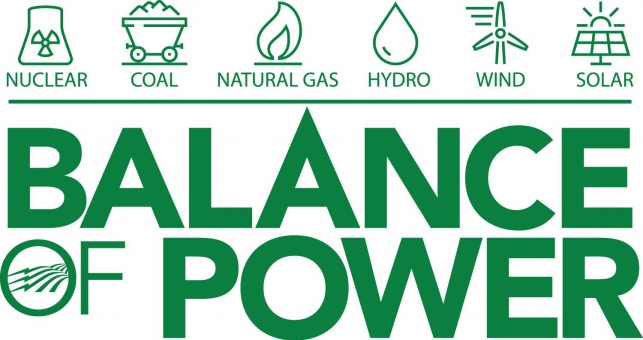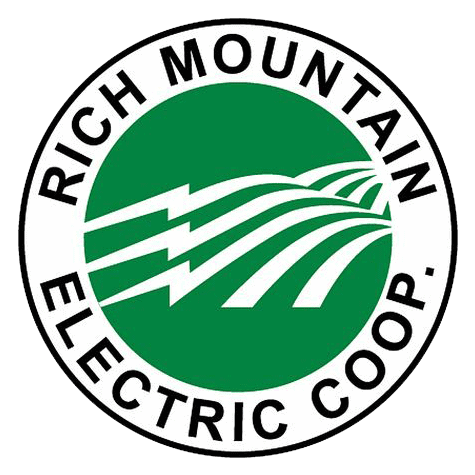The Balance of Power
The Electric Cooperatives of Arkansas, consisting of the generation and transmission cooperative, a statewide association and 17 local distribution cooperatives, provide a balance of power by utilizing diverse generation resources that will provide reliable, affordable baseload power for the nearly 1.2 million electric cooperative members across Arkansas.
Arkansas Electric Cooperative Corporation (AECC), the wholesale company that serves the electric needs of Rich Mountain Electric, is focused on meeting the needs of the future by providing and maintaining a reliable and diverse portfolio of energy resources that will create a balanced generation mix. These diverse energy resources include coal, natural gas and hydropower that provide baseload energy 24 hours a day, seven days a week, 365 days a year. The remainder of AECC’s energy resources include intermittent wind and solar resources that currently receive federal subsidies, which enable these supplementary resources to provide low-cost energy.
Challenges facing our cooperatives:
- Generation resources must be utilized based on reliability and cost, while owned and purchased resources must also be used in the most responsible, appropriate way.
- Evolving national, regional and statewide legislative policies, regulations and federal mandates could adversely impact our ability to deliver an effective, dependable balance of power to our members at an affordable price and in a reliable manner.
- Historically, electric generation has not been stored. Generation operations must exactly balance the amount of energy produced with the amount of energy consumed while keeping power voltage and frequency constant.
- Energy from wind and solar facilities is completely dependent on environmental factors like the amount of wind and sunlight, which is why energy storage is important.
- Energy storage is a technical challenge, as even the most capable lithium-ion battery storage levels are measured in hours, not days or weeks.
- More robust storage capabilities need to be developed in order to make intermittent generation a reliable electric power supply resource.
- As demand for electric load increases relative to available electricity supply, higher prices will result, which will impact cooperatives and consumers. Increased demand with insufficient supply could potentially create rolling blackouts or load curtailment.
- A misconception in the debate about energy generation is that if 1 MW of nuclear, coal or natural gas capacity is removed from the grid and replaced with a megawatt of an intermittent resource like solar or wind, it is an equal swap. This is simply not true, even though it gives the perception of being a net-zero transfer, resulting in an electric grid that is just as capable, and somehow cleaner.
- Utilities in our region have announced the closure of 24,000 MW of generation resources over the next decade, with plans to shut down an additional 10,000 MW of capacity by 2030. To put that into perspective — MW are units for measuring power, and 1 MW is equal to 1,000 kilowatts. On a yearly average 1,000 kilowatts is typically enough electricity for the instantaneous demand of approximately 250 homes at any given time.
- Arkansas is scheduled to eliminate 3,337 MW of baseload power by 2030.
While the Electric Cooperatives of Arkansas’ wind and solar portfolios are growing, these intermittent resources cannot singularly provide the baseload power needed when the sun goes down and the wind stops blowing.
Energy resources are often reduced to being labeled as either “good” or “bad.” The Electric Cooperatives of Arkansas only view energy resources by their strengths and weaknesses, balancing both to deliver a steady stream of reliable, affordable power at all hours of the day and in any season.
AECC continuously evaluates wholesale energy resource options to serve the state’s electric cooperative members. The cooperatives are technologically agnostic and support all forms of energy. The Electric Cooperatives of Arkansas work to select an energy portfolio that best balances all three components of our mission of being Reliable, Affordable and Responsible.
The development of carbon capture and storage (CCS) and advanced nuclear technology, as well as other emerging generation resources and adding more intermittent resources to the electric grid, are critical to the future of the nation. Overall, it is critical to maintain the Balance of Power — electrically, economically, militarily, socially and politically.
At Rich Mountain Electric, our commitment to you is finding ways to keep your power Affordable, Reliable and Responsible.
Learn more at: aecc.com/the-balance-of-power/.

